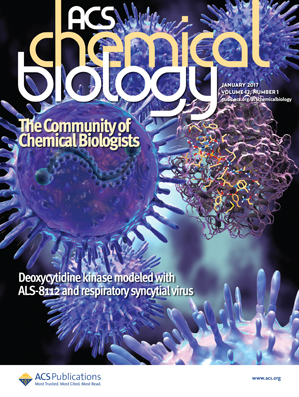POP1 通过 m6A 依赖性降解 CDKN1A mRNA 促进三阴性乳腺癌的增殖
IF 3.5
2区 生物学
Q2 BIOCHEMISTRY & MOLECULAR BIOLOGY
引用次数: 0
摘要
三阴性乳腺癌(TNBC)是目前预后最差的乳腺癌亚型,除化疗外没有其他有效的治疗方法。前体处理 1(POP1)是 TNBC 中上调幅度最大的 RNA 结合蛋白(RBP)。然而,POP1在TNBC中的作用仍有待明确。为了明确POP1在TNBC中的生物学功能和调控机制,我们进行了一系列体内外分子生物学实验和临床相关分析。在此,我们发现 POP1 在 TNBC 中显著上调,并与不良预后相关。我们进一步证明了POP1在体外和体内促进TNBC的细胞周期和增殖。从机理上讲,POP1 直接与 CDKN1A mRNA 的编码序列(CDS)区域结合并降解它。降解过程取决于 CDKN1A 第 497 位点的 N6-甲基腺苷(m6A)修饰以及 YTH N6-甲基腺苷 RNA 结合蛋白 2(YTHDF2)对该修饰的识别。此外,m6A抑制剂STM2457能有效抑制POP1表达的TNBC细胞的增殖,并提高其对紫杉醇的敏感性。总之,我们的研究结果揭示了POP1在通过降解CDKN1A的mRNA促进TNBC增殖中的关键作用,而且用STM2457抑制m6A是治疗TNBC的一种很有前景的策略。本文章由计算机程序翻译,如有差异,请以英文原文为准。
POP1 Facilitates Proliferation in Triple-Negative Breast Cancer via m6A-Dependent Degradation of CDKN1A mRNA.
Triple-negative breast cancer (TNBC) is currently the worst prognostic subtype of breast cancer, and there is no effective treatment other than chemotherapy. Processing of precursors 1 (POP1) is the most substantially up-regulated RNA-binding protein (RBP) in TNBC. However, the role of POP1 in TNBC remains clarified. A series of molecular biological experiments in vitro and in vivo and clinical correlation analyses were conducted to clarify the biological function and regulatory mechanism of POP1 in TNBC. Here, we identified that POP1 is significantly up-regulated in TNBC and associated with poor prognosis. We further demonstrate that POP1 promotes the cell cycle and proliferation of TNBC in vitro and vivo. Mechanistically, POP1 directly binds to the coding sequence (CDS) region of CDKN1A mRNA and degrades it. The degradation process depends on the N6-methyladenosine (m6A) modification at the 497th site of CDKN1A and the recognition of this modification by YTH N6-methyladenosine RNA binding protein 2 (YTHDF2). Moreover, the m6A inhibitor STM2457 potently impaired the proliferation of POP1-overexpressed TNBC cells and improved the sensitivity to paclitaxel. In summary, our findings reveal the pivotal role of POP1 in promoting TNBC proliferation by degrading the mRNA of CDKN1A and that inhibition of m6A with STM2457 is a promising therapeutic strategy for TNBC.
求助全文
通过发布文献求助,成功后即可免费获取论文全文。
去求助
来源期刊

ACS Chemical Biology
生物-生化与分子生物学
CiteScore
7.50
自引率
5.00%
发文量
353
审稿时长
3.3 months
期刊介绍:
ACS Chemical Biology provides an international forum for the rapid communication of research that broadly embraces the interface between chemistry and biology.
The journal also serves as a forum to facilitate the communication between biologists and chemists that will translate into new research opportunities and discoveries. Results will be published in which molecular reasoning has been used to probe questions through in vitro investigations, cell biological methods, or organismic studies.
We welcome mechanistic studies on proteins, nucleic acids, sugars, lipids, and nonbiological polymers. The journal serves a large scientific community, exploring cellular function from both chemical and biological perspectives. It is understood that submitted work is based upon original results and has not been published previously.
 求助内容:
求助内容: 应助结果提醒方式:
应助结果提醒方式:


